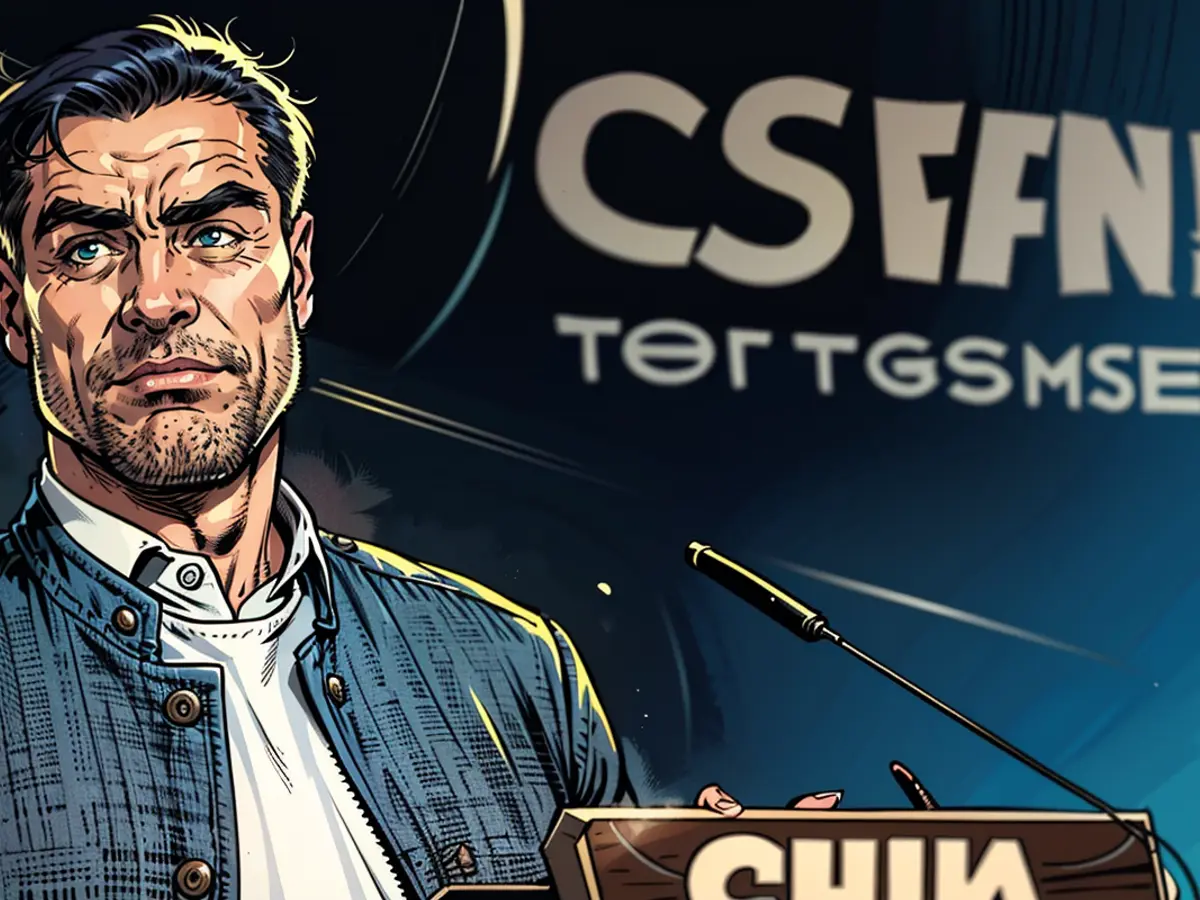Söder's cervical vertebra is a significant issue of concern.
Political Berlin is just as confused as ever in the fall of 2024. The shocking news of the Green Party's executive board stepping down caught many by surprise. Everyone was focused on Chancellor Olaf Scholz's wobbles, hoping for Boris Pistorius to replace him or waiting for the FDP to blow up the traffic light coalition. Now, everyone is wondering about Robert Habeck and his reasons for resignation.
The Green Party's decision to step down was particularly confusing as their problems didn't originate from the executive board. In fact, Ricarda Lang handled the challenges of politics and online misogyny exceptionally well, often using humor to distance herself from the situation. Her use of humor is a sign of her self-awareness, which is why she often shares self-deprecating images, such as drinking beer directly from the bottle or admitting, "The Greens are to blame for everything," with a witty remark about hateful Facebook commenters.
Lang could have become an identity-political icon, choosing to embrace the hate directed at her as a badge of honor. However, she chose to remain above such petty attacks. With her demeanor, she could have been the face of pragmatic, CDU-leaning Greens -- if she didn't lean too far to the left politically.
The Right Ones Are Gone
On the other hand, Omid Nouripour would have fit the CDU politically. He recently didn't make a good impression, calling the traffic light government a transitional government. He was also much closer to the Union on foreign policy issues, such as the Middle East and Ukraine, than the sometimes pacifist SPD. Haven't the right ones departed?
Now, power is concentrated on Habeck, who contributed to the current Green hatred and the loss of three state elections with his poorly crafted heating law.
The party is now preparing for a major coaching session at the party conference in November. "We will have a very honest debate at the party conference in mid-November, if it's up to me, about who we want to be," Habeck said in ZDF. Given his position, we can assume that Habeck has certain ideas about this.
Learn from Nixon
Habeck isn't revealing his cards, but it's not out of the question that he wants to lead the party away from identity-political and eco-Marxist paths. It promises to be a tough fight: The left wing of the Greens is angry with the traffic light coalition because it's tightening immigration policy. And the executive board of the Green Youth has even resigned en masse and announced their exit from the party because they believe the Greens are still too far to the right.
How can a left-wing Green be in the same party as someone like Cem Özdemir, who quotes Richard Nixon in the FAZ and thinks that a progressive alliance could tighten migration and asylum laws because it "can do so credibly without appearing to have false motives"? That sounds like "deportation with a human face" -- and if the Greens want to use that slogan, I'd like a high fee for my services.
Black-Green Dreams
It seems that the CDU is the Green's ideal partner, appearing stable and reliable as ever. They even manage to appear together at events, such as the Berlin-Brandenburg Academy of Sciences, where Margret Merkel celebrated her 70th birthday with Leipzig larks and crepes, among other specialties.
The CDU and Its Explosive Sister
The relationship between the CDU and its sister party, the CSU, is harmonious -- on the surface. Merkel praised Friedrich Merz, wishing him "all the best and much success for the democratic union, the union as a whole, and for our country." However, it's unclear whether she's wishing success for Merz himself. Similarly, Markus Söder communicated, matching his tie to Merkel's blazer, which was "pure coincidence."
If politics were only as simple as matching ties! As stable as the CDU seems, so volatile and explosive is its sister party, the CSU. Söder's public statements are far from in tune with the union's leadership; for Merz, an alliance with the Greens is "not possible in today's view," but leaves the door open for 2025. Söder, however, sounds categorical: "There must be no alliance with the Greens under any circumstances, it's a no-go, and the CSU will prevent it."
Hmm, how is this supposed to work out? One interpretation is that Söder is essentially backing Merz's chancellorship candidacy by adopting such a hard-line opposition to the Greens. Merz can't rule out anything strategically, or he'll be completely outmaneuvered in potential coalition negotiations. Söder's anti-Green stance allows Green-hating voters to also cast their vote for Merz. Meanwhile, Söder has benefited from his anti-Green stance in Bavaria, where the Free Voters are breathing down his neck. Win-win!
Will Söder Change His Tune?
What will Söder do if the CDU wins the federal election and wants to form a coalition with the Greens? Perhaps Merz and Söder are betting on the problem not arising -- if the Greens have completely fallen apart by then.
Perhaps they're dreaming that the Greens will undergo a significant change - transforming into Nixon-esque Greens, known for their strict stance on immigration, weapon supply to Ukraine and Israel, and absolutely no support for eco-Marxists. Even so, Markus Söder would need to execute a full 180-degree flip, an action that's equally challenging for physicians and politicians.
It'd be quite unexpected, nonetheless.
The Commission might find it challenging to navigate the Green Party's internal turmoil, given their significance in political Berlin. With Robert Habeck's resignation and the Green Party's strategic direction under debate, the party conference in November promises to be a pivotal moment for the Greens.








